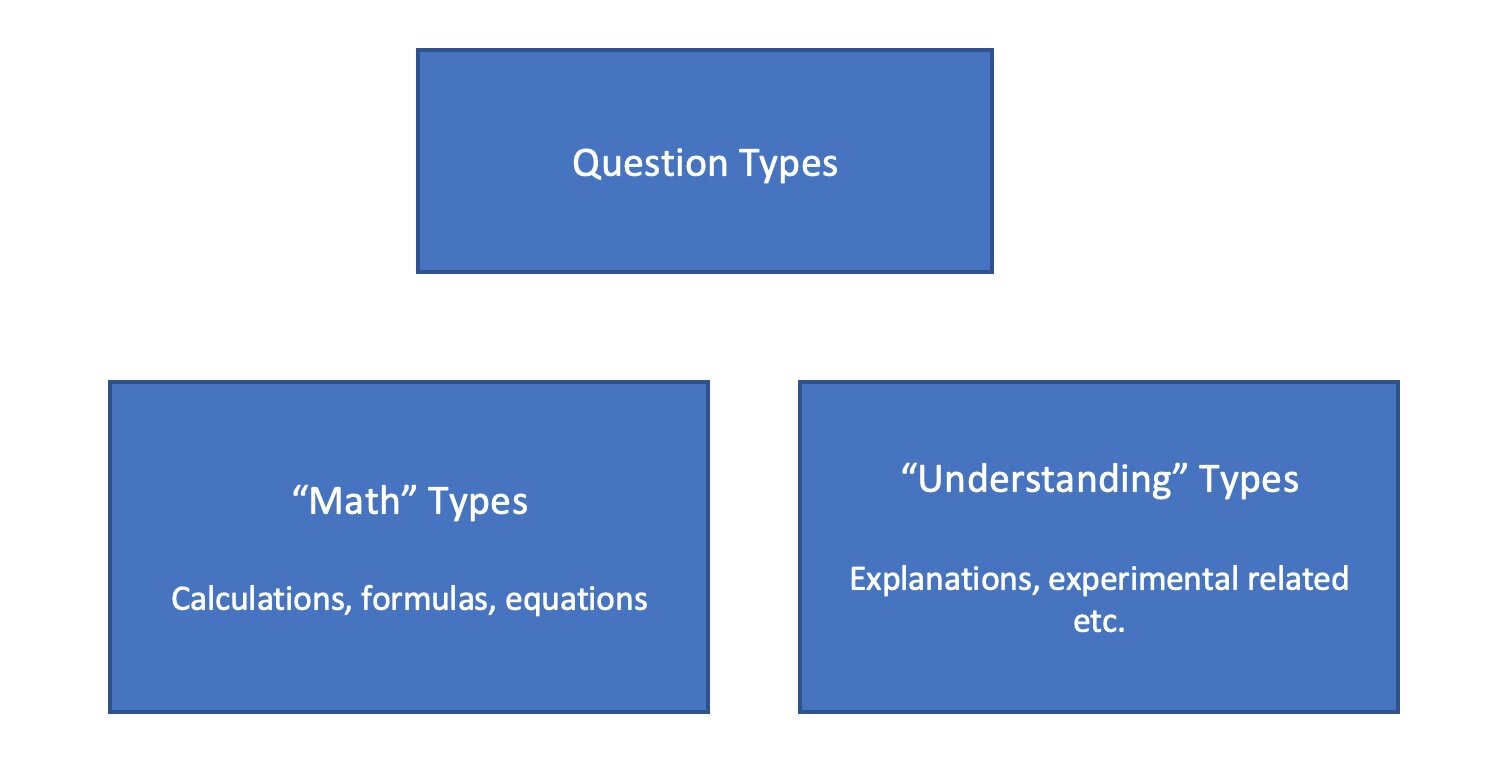Here’s Three 100% Effective Study Tips for IBDP Chemistry
Truth be told, I did enjoy learning HL Chemistry compared to my other science counterpart which was Biology. Lesser memorizing, more conceptual understanding, and definitely a more competent teacher (okay, jokes).
Nonetheless, I understand Chemistry can be a huge pain for many students out there. Not only due to the complexity of the subject, it’s harder to ‘visualise’ Chemistry in your head compared to other sciences such as Computer Science or Biology. I mean, how are you even supposed to envision molecules and atoms within your mind right?
Chemistry is a subject which requires both understanding and memorization (mainly for organic chemistry), but more of the former. Here, we’ll share with you three fool-proof studying techniques that can boost the effectiveness of your studying sessions leading up to your chemistry exams.
#1 Understanding the Two ‘Broad Scopes’ of Chemistry Question-Types….. And then Tailor your Studying Strategies to Them.
Did you know that there are two broad categories of chemistry questions?
The “Math” ones which can be practiced, and the “Understanding” ones which require conceptual ideas and some form of higher order thinking.
“Math” Ones: Usually come in the form of calculations, under mole concepts, thermodynamics (calculating enthalpy change), or even kinematics (rate of reaction) and equilibrium (equilibrium constant). These are questions which can be practiced. In order to score well in these, practice, practice, practice.
Once you become familiar with these question types, you’ll eventually get them into your head and automatically know how to tackle them without much thinking.
TLDR Studying Strategy: Practice more and treat them like Math.
“Understanding” ones: These come in the form of using chemistry concepts learnt which require you to “Explain”, or “State a reason” etc. In most cases, the best way to tackle these questions is to truly understand by brushing up on your chemistry fundamentals. They can be practiced, mainly on answering techniques which I will touch on later, but the main thing is to understand which part of the syllabus you are being tested on. Once you are aware what sort of concept this question is testing, it’s then tailoring your answers towards the question/experiment you are being tested on.
TLDR Studying Strategy: Nail your fundamental concepts down.
As we compare these two, we can often see that the “Math” ones are usually easier if you are a numbers person and love step-by-step methods to problem solve them. However, the “Understanding” ones is where you’ll need to explain everything from whatever you’ve learnt from the syllabus.
#2 Study the Keywords + Explanations for your Answers
*This is more of an extension towards the “Understanding” question types as mentioned earlier.
I cannot stress this enough, but there’s a certain “repeated pattern” in terms of questions asked during the IB exam. If you don’t believe me, pull out an entire decade’s worth of IB Chemistry questions and you’ll see what I mean.
Though many have lamented that the IB questions are getting harder and less predictable, you’ll realise that whatever is being tested hasn’t changed, it’s just the way the questions are being asked.
This is why it’s important to study MARK SCHEMES while reviewing the answers. DO NOT just study the content because it’s not going to help you find the right answers to get the point, but rather, understand how the mark is being given.
Below are two form of examples in what I mean by finding the right keywords to include in your answer.
Example 1: ‘Order of reaction’ type of questions.
Study the template you require to answer these forms of questions. It’s often phrased in a manner such as “The order of reaction with respect to [Compound] is X because the concentration from Exp. 1 has increased from XX to XX in Exp. 2 (quotation of evidence)”
Example 2: ‘Factors affecting Equilibrium” types of questions
Once again, study the template, find the right keywords and you’ll be good to go. Example it always come in this repeat pattern: “1. Equilibrium shifts left/right 2. State the change in factor (Is it PRESSURE, TEMPERATURE etc.). 3. Explain how the factor causes this”
#3 Expose Yourself to a Variety of Questions… Basically Practice.
If you are an extremely slow learner when it comes to grasping concepts, then there’s no better way to tackle chemistry other by practice questions. Once you practice more, you’ll eventually see a familiar pattern and you’ll be accustomed to answering these question types.
Once you’ve exposed yourself to different questions, you become mentally prepared in terms of questions that may “shock” you such as experiment-based questions that can be trickier.
As you practice more, you’ll also become familiar in the answering techniques required to answer the questions correctly. More importantly, it’s also about practice with have the right fundamental key concepts and keywords.
Require Some External Help to Nail those Key Concepts or Require Extra Chemistry Practice?
We hope you find this article useful in preparation for your IBDP Chemistry subject. There’s no point studying hard if you don’t study smart so we hope you’ll be able to implement these three techniques into your study sessions.
If there’s anything, do feel free to approach us here.
Not only do we break hard concepts down into mini-bite sized pieces, but we offer intense practice sessions too with UNDERSTANDING to help those in need!




